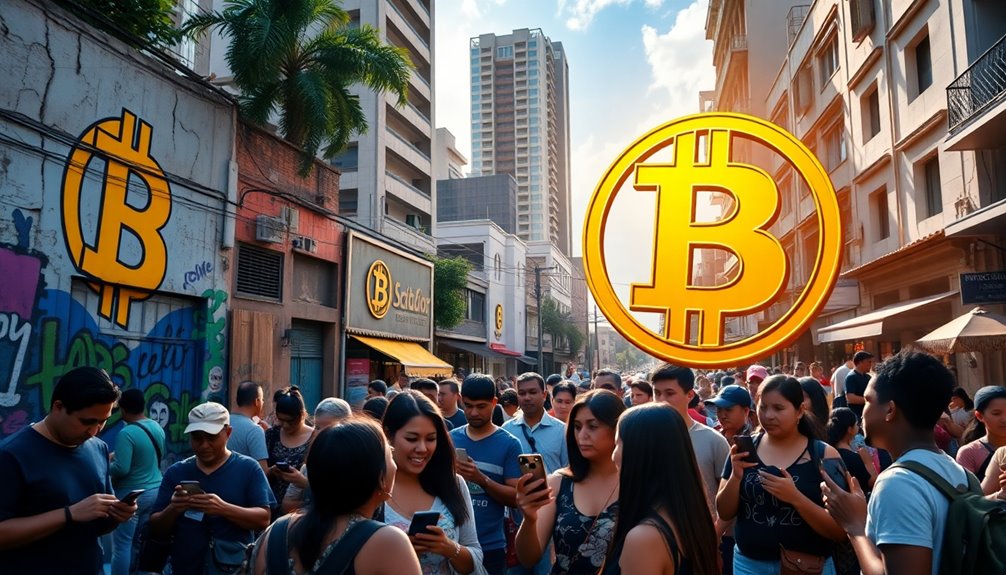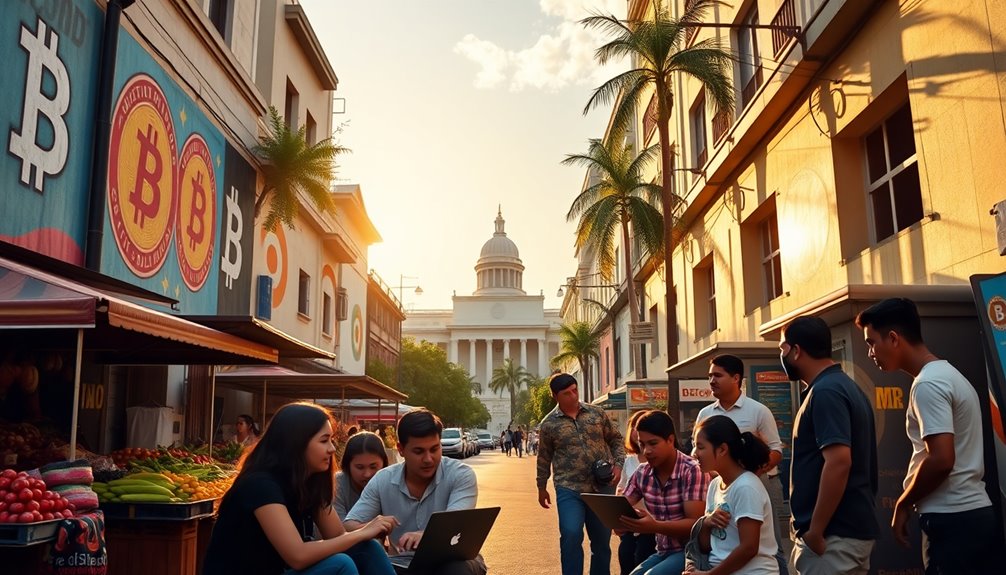After the IMF deal, Bitcoin's status in El Salvador has shifted dramatically. Once celebrated as legal tender, it's now facing heavy regulation and a lack of public interest. With over 90% of Salvadorans not using Bitcoin, the government's focus has turned to U.S. dollars and stricter laws. What does this mean for the future of initiatives like the Chivo wallet? The answer might surprise you.

As El Salvador navigates its recent deal with the IMF, significant changes to Bitcoin's status and usage are unfolding. Initially, the country made headlines by adopting Bitcoin as legal tender, but now that status has shifted dramatically. You'll notice that acceptance of Bitcoin is now voluntary for the private sector, a stark contrast to the previous mandate. Under pressure from the IMF, El Salvador has removed Bitcoin's legal tender status, altering the landscape for both businesses and consumers.
The legislative assembly has passed reforms to modify the 2021 Bitcoin Law, abandoning the idea of Bitcoin as a currency. While it technically remains legal tender in a limited sense, it's clear that the government is pivoting away from its earlier enthusiasm. The IMF's recommendations have played a crucial role in this transition, pushing for a reduction in the law's scope and stronger regulatory oversight. This shift aims to mitigate risks associated with Bitcoin, especially as the IMF conditions its $1.4 billion loan on reducing these risks. El Salvador's adoption of Bitcoin has become a case study for other nations considering similar moves.
You might also see that public sector engagement in Bitcoin activities is now confined, limiting its use in government transactions. The state-backed Chivo wallet you may have heard about is also facing an uncertain future, as plans emerge to either sell it or wind it down. Taxes are now required to be paid in U.S. dollars, further signaling a move away from Bitcoin as a viable currency option. The overarching goal of the loan is to stabilize El Salvador's economy and reduce its debt-to-GDP ratio.
Despite these changes, the government continues to support Bitcoin in a different capacity, maintaining its Strategic Bitcoin Reserve. However, public adoption remains low, with over 90% of Salvadorans not using Bitcoin for transactions. While private sector wallets will still operate, the initial promise of Bitcoin enhancing remittance efficiency faces scrutiny amidst concerns about its volatility.
Looking ahead, the IMF Executive Board's approval of the loan deal looms large, and it's expected to unlock additional funding from other banks. The IMF-supported program aims to bolster fiscal and external stability, creating a more robust regulatory framework for Bitcoin. While El Salvador's journey with Bitcoin is far from over, the current landscape marks a significant shift from the ambitious plans of just a few years ago.










